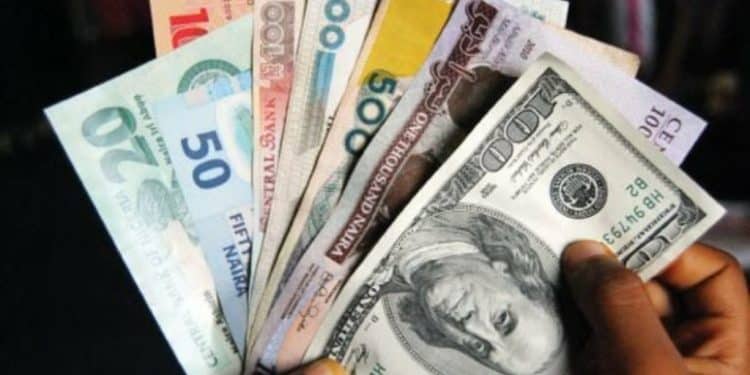In addition to lifting the prohibition on 43 commodities previously ineligible for forex in the official market, the Central Bank of Nigeria (CBN) has announced that it is increasing the availability of dollars in the foreign currency market.
Following criticism from international bodies and experts, the naira fell to 1,050/$ on the parallel market on Thursday, leading to the decision.
In June, the CBN stated that the 43 non-eligible commodities imposed by the previous governor, Godwin Emefiele, were still prohibited from the currency market, even though exchange rates had stabilised.
Between 2016 and 2022, Nigerians imported at least nine commodities worth N18.12 trillion from the CBN’s list of prohibited foreign exchange.
The National Bureau of Statistics’ analysis of Nigerian Foreign Trade reports from 2016 to 2022 revealed that imports from multiple nations included crude palm oil, vegetable products, animal products, meat, vegetable fats and oils, steel products, rubber, plastic, clothing, and textiles.
Meanwhile, Nigerians imported five goods worth N543 billion in the first quarter of 2023 despite the CBN’s prohibition on certain items.
However, other organisations and economists have consistently recommended the CBN to lift the forex restrictions.
CBN bows to pressure
After much persuasion, the CBN gave down and removed the restriction on importers of 43 prohibited goods from obtaining foreign exchange via its official platform.
This was revealed in a statement released Thursday under the heading “CBN restates commitment to boost liquidity in the forex market,” which Isa AbdulMumin, the bank’s director of corporate communications, signed.
“Importers of all the 43 items previously restricted by the 2015 circular referenced TED/FEM/FPC/GEN/01/010, and its addendums are now allowed to purchase foreign exchange in the Nigerian foreign exchange market,” the statement said.
To guarantee that market forces determine currency rates based on the willing buyer-willing seller concept, the apex bank said it would continue to encourage orderliness and professional behaviour by all Nigerian foreign exchange market players.
It added, “The CBN reiterates that the prevailing foreign exchange rates should be referenced from platforms such as the CBN website, FMDQ and other recognised or appointed trading systems to promote price discovery, transparency, and credibility in the FX rates.
“As part of its responsibility to ensure price stability, the CBN will boost liquidity in the Nigerian foreign exchange market by interventions from time to time. As market liquidity improves, these CBN interventions will gradually decrease.”
The CBN promised in the statement to step up efforts to expedite the FX backlog with current participants and to communicate with stakeholders to resolve the matter.
It stated, “The CBN has set as one of its goals the attainment of a single FX market. Consultation is ongoing with market participants to achieve this goal. Participants and the general public are to be guided by the above.”
However, the naira saw a modest increase in the Investor & Exporter forex market after closing at 759.20/$ on Wednesday, down from 766.41/$ on Wednesday.
However, Olayemi Cardoso, the newly appointed governor of the Central Bank of Nigeria, also states that the new leadership team will reposition the apex bank to fulfil its primary mandates by reviewing the CBN’s monetary policies, corporate governance procedures, and foreign exchange market policies.
He said that the newly appointed team members, who started working at the bank full-time a few weeks ago after being confirmed by the National Assembly, were already thoroughly analysing the difficulties the central bank was facing.
Our correspondent received a document on Thursday that included this information.
“Preliminary assessment of challenges facing the Central Bank of Nigeria” was the title of the document.
In the document, Cardoso described the difficulties the CBN faces, offered high-level solutions to reformation issues, and looked at how a refocused central bank may help President Bola Tinubu’s economic strategy.
The new governor of the CBN posed several questions in the paper, including how the CBN’s corporate governance shortcomings could be addressed, how stakeholders in the financial and public systems could regain trust in the CBN’s independence and integrity, and how the central bank needs to return its attention to its core duties.
Additionally, he repeatedly emphasised the need to implement evidence-based monetary policies, which include ending unconventional foreign exchange management and monetary policies, controlling the use of ways and means of spending, and establishing restrictions on how it can be used to finance the public sector deficit.
Cardoso underlined the necessity of innovative financing solutions to clear the short—to medium-term backlog of FX demand.
The new central governor has suggested solutions to address inflation and price stability concerns. He also intends to restrict the CBN’s fiscal actions.
Cardoso said, “These problem statements need in-depth review by the new Central Bank leadership team to determine what mechanisms are currently working, what can be tweaked or dispensed with and what new tools need to be introduced.”
On how the CBN can be refocused to support economic growth, he said, “The economic policy proposals of the administration identify a set of fiscal reforms and growth targets that will achieve $1.0tn GDP within eight years. In reviewing selected BRICS and MINT countries with large populations and similar developmental characteristics as Nigeria, it is interesting to identify macroeconomic indices that point to Nigeria’s economic trajectory, given the faithful implementation of the proposed economic reforms. In economies bigger than $1.0tn, these indicators include moderate inflation, sizable foreign reserves, and the capacity to rebound from a cyclical economic downturn quickly.”
He added, “Much has been made of past CBN forays into development financing, such that the lines between monetary policy and fiscal intervention have blurred. In refocusing the CBN to its core mandate, there is a need to pull the CBN back from direct development finance interventions into more limited advisory roles that support economic growth.”
He listed the advisory roles as follows: de-risking instrumentation to increase private sector investment in housing, textiles and clothing, the food supply chain, healthcare, and educational supplies; exercising the CBN’s convening power to bring critical multilateral and international stakeholder participation in government and private sector initiatives; pushing new regulatory frameworks to unlock dormant capital in land and property holdings; and speeding up access to consumer credit and expanding financial inclusion to the masses.
In conclusion, Cardoso said, “It must be emphasised that CBN does not have a magic wand that can be waved at the current economic challenges. The problems facing the bank are large and complex. However, with focused leadership and sustained reforms, it is expected that over time, the country will see gains in open economic spaces, attract new investments, create employment, and give our hard-working and talented compatriots an opportunity for a more prosperous future.”










